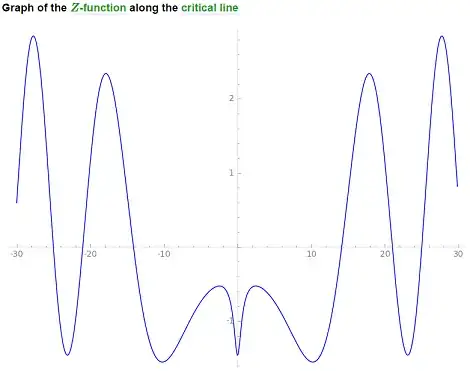Assume we are given the Riemann zeta function on $\mathrm{Re}(s) > 0$ by:
$$\zeta(s) = \dfrac{s}{s-1} - s\int_1^{\infty} \dfrac{\{u\}}{u^{s+1}}du$$
My question is: can you give me explicitely a real number $t>0$ such that $$\zeta(1/2 + it) = 0$$ (and providing a proof that this is exactly a zero of $\zeta$).
I saw questions like Show how to calculate the Riemann zeta function for the first non-trivial zero or Proving a known zero of the Riemann Zeta has real part exactly 1/2, but none of them seem to give a concrete and exact example (I don't want to have approximations, nor to use a computer).
It is actually possible to have an exact value for (at least) one zero of $\zeta$ ? Maybe this is not possible, this is why I'm asking.
